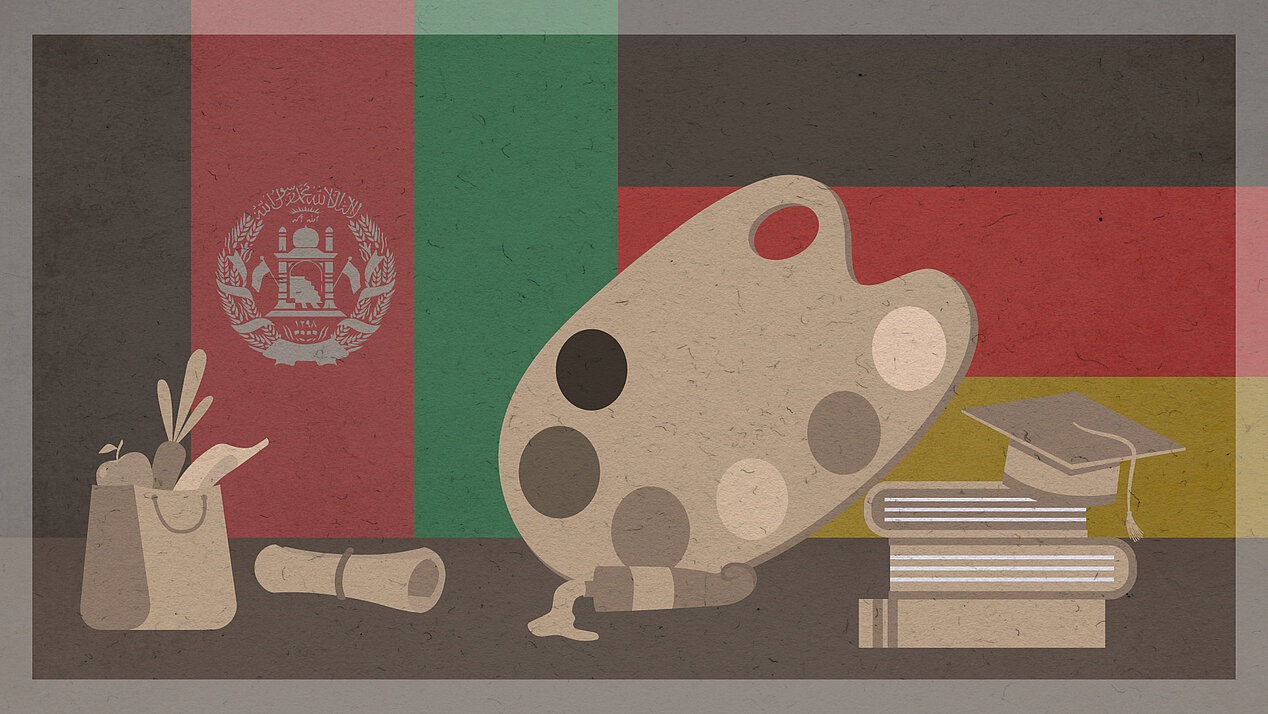
The end of a twenty-year engagement of NATO troops also lead to a break in general bilateral relations between Afghanistan and its partners thus far. On the 18th of November, German and Dutch official delegations met with representatives of the new de-facto-government to discuss possible options for working together. This meeting also included issues of access to education as well as basic rights of men and women.
While the German and Dutch delegations highlighted their willingness to support the delivery of humanitarian aid in Afghanistan, further engagement will depend on the Afghan de-facto-government delivering on its promises, e.g., concerning equal rights of opportunity.
But what could such future German engagement look like? To answer this question, there will be a brief look into the term 'cultural relations' as well as into the mistakes of the past.
One aspect of future German engagement is cultural relations. Cultural relations are, as former chancellor Willy Brandt put it, the third pillar of German foreign policy next to political and economic relations.
The Federal Foreign Office defines cultural relations as follows:
At the heart of cultural relations and education policy lies the task of enabling access to culture and education across geographical, political and social borders, thus creating mutual understanding: the basis for good international relations. Cultural relations and education policy can thus also help to defuse or even prevent crises and conflicts around the world: what matters is that we remain in dialogue, that we maintain our common ground with others.
– Federal Foreign Office, 1995–2022
Cultural relations specifically entail working with and work between civil society actors, artists, scientists and journalists focusing on freedom of expression, freedom of the arts, science and culture as well as cultural identity. Additional topical issues of global dimension that impact each other and also the (economic) livelihoods of people affected can be found in the graph. With regard to Afghanistan, some of the topics of cultural relations are at the forefront of the debate concerning future German-Afghan bilateral relations.
The NATO-engagement in Afghanistan was strongly guided by the U.S. Army/Marine Corps Counterinsurgency Field Manual of 2006 which focused heavily on the now famous doctrine of winning 'hearts and minds'.
However, the execution of the idea of winning hearts and minds – and thus not only creating a Western-style envisioned democratic model but also civil society – in retrospect partly relied too much on the assumption that democracy could just be 'dropped in'.
Democracy-building is a long and complex process that requires strong bottom-up support. But, according to political expert Rahmatullah Amiri, after the 2001 invasion, Afghan civil society was elite-driven and monetised. Almost all civil society work was project-based; if funds were provided, there were activities. This not only worked against traditional ways of coming together in communities with elders, but also strengthened the urban areas more.
Furthermore, an accountability was created first and foremost towards donors and not towards the Afghan people. With this structure in place, it was more of a top-down state than one with bottom-up support.
The complex history of Afghanistan also meant that a lot of ideologically competing factions came together. Here a clash opened up between seemingly outside influences and local heritage.
What clearly emerges from the mistakes made in the past is that context matters. This refers to historical, geographical and societal context. On top of the previously mentioned, one is now dealing with an unreliable black-box de-facto-government in Afghanistan. Therefore, it is important to find out where the red lines of the new de-facto-government are concerning possible cultural relations engagement.
Some experience with the Taliban in the past has shown that they are of course fundamentalists but also realists: They need a functioning state to govern. Jasamin Ulfat, who researches Afghanistan as a site of British military and colonial history, again points out that if a school or project takes over the provision of a basic service and it is not against Taliban teachings in the most fundamental ways, they are often going to leave it running.
Moreover, if an idea or concept can be packaged as 'Islamic' in some way, it will catch on more easily. Going back to the issue of 'imported' ideas mentioned above, women's rights should be framed in Islamic terms. One should make clear that women's rights is also an Islamic concept and that it is in the interest of everyone in society to have women on equal footing with men. Here it helps that especially young Afghan men and women are better educated than they were under previous Taliban rule in the 1990s.
Currently, the German Foreign Office is funding a Deutsche Welle media project in Afghanistan, 'Aashti', that will continue locally supported by a privately run Afghan media company. This has given hope to possible future engagement in the media sector.
Along the lines of direct local engagement, a structured German or even EU-fund to support libraries and museums in Afghanistan may also be a way forward.
After all, it must be kept in mind that the most pressing issue facing Afghanistan at the moment is one of hunger and devastation. If not enough food and water can be provided for the population, there will be no civil society, not even a society, to engage with.
The abrupt end of the twenty-year NATO engagement, the disastrous evacuation and the new Taliban rule also show that a lot of trust needs to be built up again between Afghan civil society and Western actors. Future engagement will need to rebuild this trust and first of all focus on credibility in new German-Afghan cultural relations.